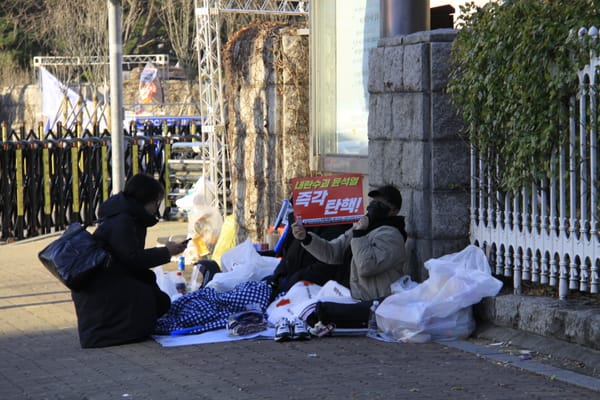Asia Undercovered #11: Media clampdowns in Asia
Asia Undercovered: Journalist Nithin Coca's weekly roundup of the news, events, trends and people changing Asia, but not getting enough attention in the US media.
Media clampdown in Asia
One of the big stories this month was the filing of an arrest warrant for the editor of Rappler (a publication I’ve featured several times in Asia Undercovered), and co-Time Person of the Year Maria Ressa. Sadly, this news is just the latest in what has been a trend across the region. The most egregious example was in Cambodia, where the free press was basically eliminated ahead of an election in which the ruling party claimed 100% of seats in Parliament, but also in Japan, India, Thailand, Bangladesh, and other countries, journalism is getting tougher, not easier.
One way it’s getting harder is that many regions are inaccessible to the media – such as Xinjiang, where details about what’s happening in the massive Uyghur concentration camps is lacking. Brian Hioe writes in Popula about how rumors spread when there’s no reliable way to get information out.
Also Undercovered
Definitely read this piece in Taiwan Gazette about the life of a Han Chinese student in Xinjiang even before the camps emerged – disappearing teachers, pervasive surveillance, and no space to talk about what was happening around them.
Worth watching – Ian Johnson, a China religion expert, tweeted about the clampdown on a Church he had reported extensively on – a worrying sign that Christians are now facing what Muslims have faced for years.
Was this the year that China’s luck ran dry? That’s what Kerry Brown argues, as the country faces increasing attentions for its trade, militaristic, and, of course, human rights abuses amidst signs of an economic slowdown (East Asia Forum).
More violence in Indonesian Papua, as militants killed 31 construction workers in what was the deadliest attack in years. To understand what’s happening, read this by Arie Ruhyanto, who explores the role of President Joko Widodo’s failures to keep his promises with regards to human rights abuses and state violence in the region (The Conversation).
India is embarking on a subway building boom. This piece in Nikkei Asian Review gives an overview of all the planned systems and how they will remake India’s urban landscapes.
Remember when Thailand closed some famous beaches due to overtourism? Pichayada Promchertchoo visited one of these islands and found remarkable progress on environmental restoration. (Channel NewsAsia)
To watch: state polls in India. The results could show how much power Prime Minister Narendra Modi’s BJP party has ahead of next year’s general elections. However, as Mohammed Ayoob writes in The National Interest, signs are that both major national parties are appealing to religious Hindu sentiment, meaning that secularism might already be dead.
A light note: Visualizing Hong Kong and Shenzhen
30 years ago, there was little more than rice fields across the border from Hong Kong. Today, a modern, metropolitan city with skyscrapers reaching right up to the border – an incredible site. This visualization from South China Morning Post looks at how these sister cities have changed over the past decades to the point where, today, Shenzhen is the big brother to Hong Kong.
Until next week,
Nithin Coca



